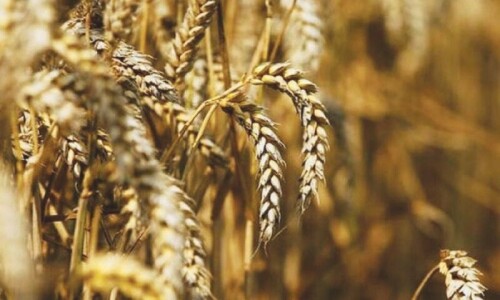Majority of the print and electronic media organisations continue to disclose identity of the victims of sexual offences, particularly children, in sheer disregard to the relevant laws and code of ethics.
The surge in reporting incidents of sexual offences has exposed the lack of training as well as awareness of the relevant laws on part of mediapersons and organisations.
Different local newspapers have regularly been disclosing identities of victims, including children and women, in cases of sexual offences.
Similarly, the media is also involved in violation of the Juvenile Justice System Ordinance, 2000, which also prohibits disclosing identity of a child in conflict with law.
“We have to give priority to the best interest of a child while reporting on issues related to them, particularly in abuse cases,” said human and child rights activist Imran Takkar. He added that as recently the print, electronic and social media had focused on cases of child sexual abuse, it was important that they should follow ethics and international standards in this regard.
Mr Takkar said that not disclosing identity of the victim of sexual offence was provided in different laws which should be followed as it was in the best interest of a child. “If identity of a child is disclosed it will result in negative effect on him or her in future and there is a greater possibility of ostracizing of the victim by the society,” he maintained.
The federal government had prohibited identification of a victim of sexual offences through the Press Council of Pakistan Ordinance 2002. Section 14 of the Ethical Code of Practice included in the said ordinance provides: “In the case of sexual offences and heinous crime against children, juveniles and women, names and identifying photographs shall not be published.”
In 2016, the Criminal Law (Amendment) (Offences Relating to Rape) Act, 2016 was enacted through which amendments were made in Pakistan Penal Code (PPC) and Code of Criminal Procedure (CrPC). Through one of the amendments section 376A was incorporated into the PPC, which made the identification of a victim a penal offence liable to prison term as well as fine.
Section 376A (1) states: “Whoever prints or publishes name or any matter which may make known identity of victim, against whom an offence under section 354A, 376, 376A, 377 and 377B is alleged or found to have been committed, shall be punished with imprisonment of either description for a term which may extend to three years and shall also be liable to fine.”
Section 354A deals with assault against a woman and stripping her of clothes, section 376 deals with rape, section 377 deals with unnatural offence against a man, woman or animal, whereas section 377B deals with child sexual abuse.
Some exceptions are given in section 376A allowing the printing and publication of identity of a victim if it is by or under order of officer-in-charge of the police station or police officer making investigation into such offences acting in good faith for the purpose of such investigation; by or under order of court; or, by or with authorization in writing of the victim; or with authorization in writing of natural or legal guardian of the victim where the victim is dead or a minor or of unsound mind.
One major flaw in this provision is that it is only applicable to the print media, and not electronic and social media. Furthermore, it has not been provided as to who would be the monitoring officer to check violation of this provision by the print media.
In 2015, the federal government notified the Electronic Media (Programme and Advertisement) Code of Conduct 2015 under the Pakistan Electronic Media Regulatory Authority Ordinance. This code of conduct was prepared under the PEMRA Rules 2009.
Section 8 (6) of the Code states: “Identity of any victim of rape, sexual abuse, terrorism or kidnapping or such victim’s family shall not be revealed without prior permission of the victim or victim’s guardian where victim is a minor.”
Moreover, in Khyber Pakhtunkhwa the KP Child Protection and Welfare Act was enacted in 2010, which also prohibits publication of names of children at risk. Section 24 (1) of the Act states: “No report in any newspaper, magazine or news sheet of any assessment regarding a child at risk under this Act shall disclose the name, address or school or any other particulars, which lead to the identification of the child at risk nor shall any picture of the child at risk be published.”
Any person violating this provision is liable to fine of up to Rs10,000. However, so far no newspaper has been punished under this provision.
In neighbouring India The Protection of Children from Sexual Offences Act, 2012, was enacted in June 2012. Section 23 (2) of the said Act provides: “No report in any media shall disclose the identity of a child including his name, address, photograph, family details, school, neighborhood or any other particulars which may lead to disclosure of identity of the child.” An exception is given to this provision which provides that a special court competent to try the case under the said Act may permit such disclosure if in its opinion such disclosure is in the interest of the child.
This law also provides that the publisher or owner of the media or studio or photographic facilities shall be jointly and severally liable for the acts and omissions of his employee. Violating this provision is punishable with up to one year imprisonment or fine or both.
“We not only need to improve the laws, but also have to implement the existing provisions,” said Mr Takkar, adding that media at the same time could also play a very proactive role to educate people on such issues.
He pointed out that some of the TV channels shared graphic details of the Kasur incident without taking any precautionary steps towards the children viewers.
Published in Dawn, February 5th, 2018












































Dear visitor, the comments section is undergoing an overhaul and will return soon.